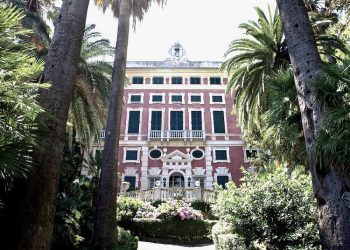Memorie.al / Anyone who has had the opportunity to visit the Ethnographic Museum in the “Lekaj” neighborhood, Tuzi, Montenegro, is surprised by the unusual work of a simple man, around 80 years old, Shtjefën Ivezaj. Thanks to this investment, for at least 12 years, the director of this museum, Mr. Shtjefën Ivezaj, has been honored in a completely special way by various visitors and the entire Malësia (Highlands), despite the complete, even absurd, disregard for his work by the local and central government in Montenegro, and unfortunately, even where Albanians “govern.” Civilizations, since their genesis, have honored quality investments for their own emancipation, but the honor in question comes somewhat differently, sui-generis, not simply for what it contains, but much more than that, for the motive that brought such a work to life, as the first of its kind in the entire natural area of Malësia e Madhe (Greater Malësia), the “Honor of the Nation.”
And so, not simply for what it offers us as a value and wealth of national interest, but the essential thing, it’s coming into being, in the context of self-sacrilege, bordering on the absurd, thanks to the great patriotic spirit, otherwise the behavior of an enlightened patriot in post-enlightenment, of the architect and manager of this property, which is as local as it is national, Shtjefën Ivezaj, today we have this brilliant achievement, the Ethnographic Museum in our region, in Malësia e Madhe.
This, naturally, would be insufficient to decipher the values and motive of such a dedication, unprecedented in Albania and much further by Mr. Ivezaj, without an unveiling and understanding, far from the spirit of banal provincialism or unhealthy sentimentality, of his life. After finishing primary school and the 7-year school in his neighborhood, “Lekaj” of Tuzi, young Shtjefni continued the 3-year professional school, for a lathe operator, in the Montenegrin capital, Podgorica.
From 1954, he practiced the beautiful profession of a photographer, as an amateur, managing to join the club of photographers and cine-amateurs of Montenegro. The spiral of success for this young man would not be enough with just that. After successfully passing the exam before the commission set up by the Municipality of Podgorica, he managed to get the license to open a shop as a photographer in Tuzi, almost 49 years ago. In 1969, he successfully passed the differential exam for photographer, with excellent results, in Podgorica.
Thanks to his passion and professional dedication to celluloid fixation, the marvelous art of photography, the first Highlander photographer in Malësia e Madhe, in Montenegro, in 1970, prepared the first postcard, the interior of which would consist of: The portrait of our National Flag, the portrait of our National Hero, Gjergj Kastrioti-Skanderbeg, and the portrait of the “Hero of the People,” Ded’ Gjo’ Luli.
These postcards were distributed throughout the entire Albanian world, which the Yugoslav UDB (secret police) experienced as a serious threat to “Brotherhood-Unity,” this notorious, ill-fated political farce, acknowledged by Albanians, leading to the detention of Ivezaj, full of healthy will and dreams, to enlighten and pass down our national values, without infringing on anyone’s share of the sun…!
Fate brought this detention situation to a quick end, thanks to the fact that at the time in Belgrade, Noli’s book dedicated to Skanderbeg had been published in the Albanian language. Ivezaj’s intelligent and fortunate reaction in the UDB cells: “I did not know that Skanderbeg is banned in the Albanian language,” led to the detainee’s release from custody, after it was “clarified” that Dedë Gjo’Luli is banned, but his postcard, which is preserved today in the Ethnographic Museum, near the “Marubs,” would be “systematized” in the black book fund of the UDB, the Yugoslav secret service.
“In this context of pain, surveillance, and persecution, forced to survive, I have often had to bring very important book titles out of existence, in the name of both economic and physical survival,” – we learn from Ivezaj. From what we conveyed above, it is not difficult to read that the path of this exemplary investment, of a patriot and intellectual, would be an extremely strenuous one:
Persecution, contempt, discriminatory differentiation in all forms from the official, anti-Albanian policy, otherwise attacks that would follow him everywhere, so badly that they would force him to sell his shop, along with the land, and whatever he had to survive as a family and preserve, as sacred, the national museum values, collected with so much effort, in an environment where our national identity was seriously endangered. And, undoubtedly, in the journey of every achievement, as psychologists would say, one must also read the invisible one, the influence of dormant instincts:
Thus, his mother, Drane Turmalaj from Vrith, Shkrel-Malësia e Madhe, would be distinguished as a collector of soap, jacket, and shirt buttons, an activity also inherited by Ivezaj’s son and daughter, Martini and Drita, both currently residing in the USA, collections that are preserved today near the museum. The Democratic Changes, as with any of us, brought the hope of a future full of solutions in the local and national democratic context, to the patriotic and intellectual concerns of Ivezaj, at the same time a member of the Democratic League in Malësia, with Chairman Mr. Nikollë Camaj, since 1989.
The Intellectuals Forum in Ulqin, with chairman Bahri Brisku, upon the request of the Albanian Intellectual Forum, Tirana, in 2011, based on the proposal of the Writers’ Club in Ulqin, with chairman Mr. Nail Draga, honored him with the title; “Peace Ambassador of South Korea,” verified by the South Koreans. In May 2002, when he was convinced that not only the central government in Podgorica but also the Albanian political parties were not raising their voices, excluding some modest sponsorship with electoral effect, thus not openly, or even among themselves, in support of such a national value, like the Ethnographic Museum, “the excellent example of a Rilindas in our time,” initiated since the age of 12, with the collection of postage stamps, Ivezaj decided to sacrifice his apartment, his house.
Everything he had, furniture, and utensils, he removed, replacing them with furniture functioning for the museum. The 4 rooms, the corridor, and the balcony are improvised specifically for the arrangement of the museum material. From the fossilized snail, Illyrian scythes, swords, blood stones (traditional reconciliation stones), various clothes for men and women, etc., etc., constitute that wealth that would normally require an area of 10,000 square meters, “normalized” by Ivezaj in his house; A sacrilege bordering on the absurd, of a true patriot.
His only permanent and sincere support was his 76-year-old wife, disabled, without a pension, without assistance, whiles the only moral stimulation; “For the preservation of Albanian cultural heritage,” was from the former mayor of the urban commune of Tuzi, Mr. Maliq Çun Mulaj. Faced with this situation, Ivezaj is the owner, director, and 24-hour guard of this object, against a pension of 96 EUR, when a minimal national pension in Montenegro is paid at 800 EUR per month.
On 24.03.2014, the patriotic association “Malësia e Madhe, Honor of the Nation,” through its chairman Mr. Sytki Ndreca, on the social network Facebook, addressed a letter of awareness to our President of the Republic, Mr. Nishani, Speaker of the Parliament Mr. Meta, Prime Minister Mr. Rama, as well as the Minister of Foreign Affairs Mr. Bushati, regarding this absurd status of the director of the Ethnographic Museum of Malësia, Mr. Shtjefën Ivezaj, however, so far, no reaction. And this treatment continues, even though from Mr. Ivezaj, as a first-class patriot, in a context of sacrilege bordering on the absurd, otherwise with an enlightened dedication in post-enlightenment, the successes of this museum are astonishing.
Philately with 35,000 postage stamps, the photo archive with films, negatives of 40 years, as well as the library with 3,800 titles, which also includes many museum books in 4 languages: Albanian, Serbian, English, and German, alongside the dominant ethnographic values, mark an added national asset. Thanks to a sacrilege of its own kind, both personal and familial, making us proud of our patriotic substance, when under the fever of fierce cult-pragmatism, we are often forgetting our valuable past, the hypothesis of our dignified future.
With the status of the chairman of the League of Writers and Artists of Malësia e Madhe, the “Honor of the Nation” personally, the precedent created with the Albanian Ethnographic Museum, on 13.01.2015, I raised it again as a serious problem, also with our Ministry of Culture, to Mr. Zef Çuni, the Deputy Minister of Culture, at the same time a deputy of the Shkodra region, I received the promise that; in coordination of actions with the Albanian factor and the Montenegrin government, our counterparts, we will seriously invest in solving this absurd situation, a precedent that also compromises the seriousness of Montenegro’s own integrative commitments in the EU, which means, among other things, respect for the cultural heritage of minorities.
Such an unforgivable disregard for the Albanian cultural heritage in Montenegro becomes even more absurd, in the face of systematic silence, at all levels of power, when a minority ministry operates there, always led by Albanians, alongside Albanian representatives in the Montenegrin parliament, or the local one in Tuzi and Ulqin.
The time for this solution, the time to abandon this absurd disregard has come, if as a nation, the concept of national revival, like that of integration first within ourselves, we and our first neighbor, Montenegro, are each taking seriously with ourselves.
Precisely this mission, the re-evaluation and real support, as an added national value, of the Ethnographic Museum in Malësia, Montenegro, I am convinced will be served by the visit that the Deputy Minister of Culture Mr. Zef Çuni is soon expected to make to Tuzi. Let us hope that sometime and someone, indeed, will take action against this official disregard for the Albanian ethnographic Museum in Malësia, Tuzi, Montenegro, gracing the stature of our missing self as a nation, in the good preservation and normal functioning of this national wealth in our lands.
With the consciousness that all our political movements will turn into false illusions within ourselves, if we do not manage to understand that real integration into the European Union, let alone our national unity, cannot be achieved without our spiritual unity, in the function of which such works, like the Ethnographic Museum in question, are placed with so much dignity and efficiency. Memorie.al




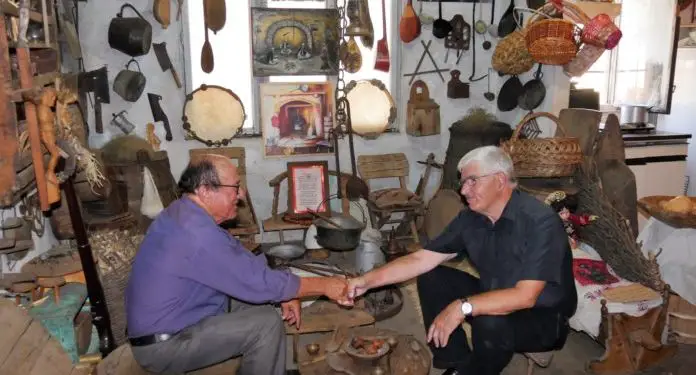
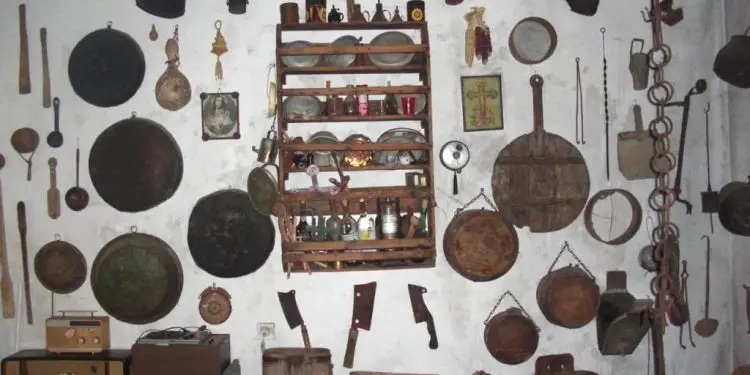
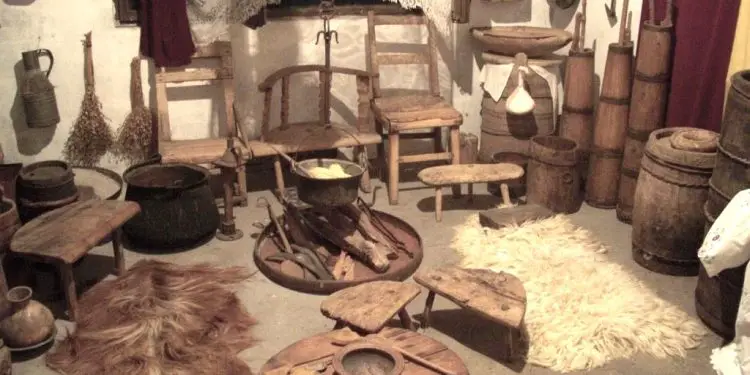
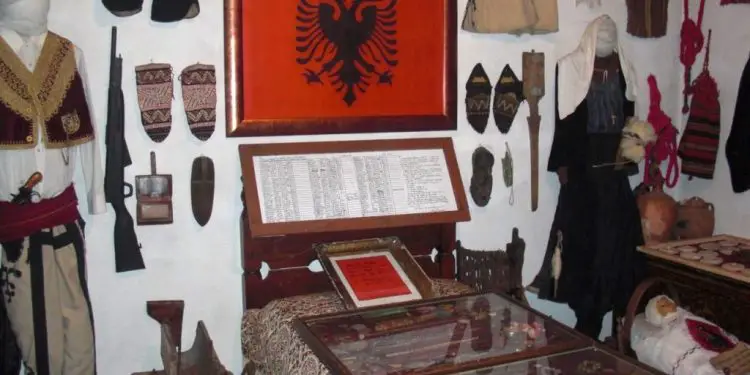
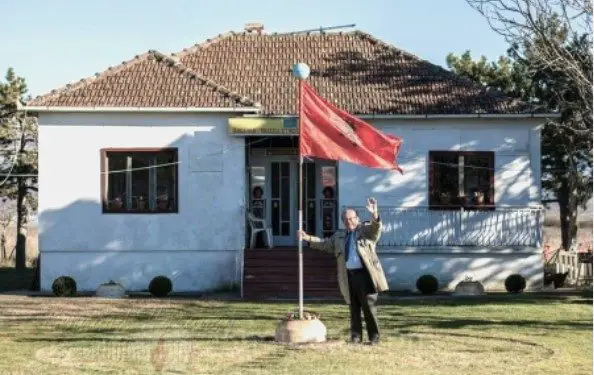
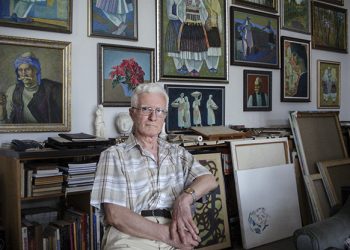
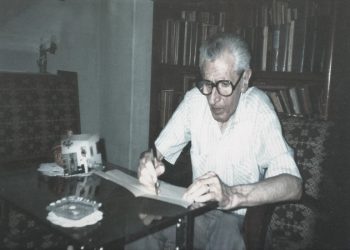
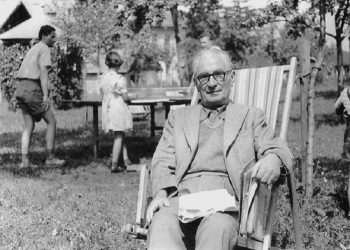

![“Count Durazzo and Mozart discussed this piece, as a few years prior he had attempted to stage it in the Theaters of Vienna; he even [discussed it] with Rousseau…” / The unknown history of the famous Durazzo family.](https://memorie.al/wp-content/uploads/2026/02/collagemozart_Durazzo-2-350x250.jpg)
